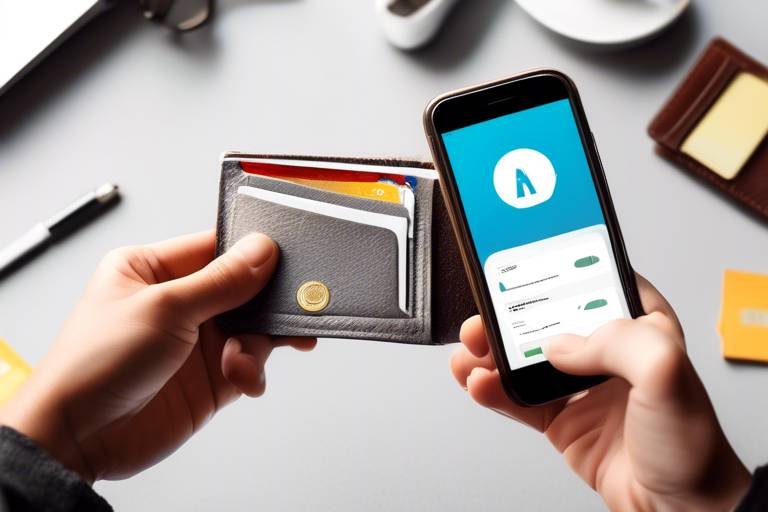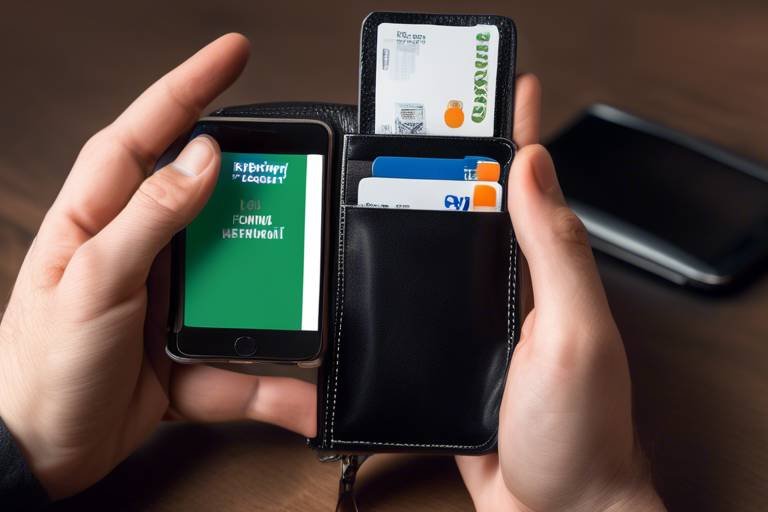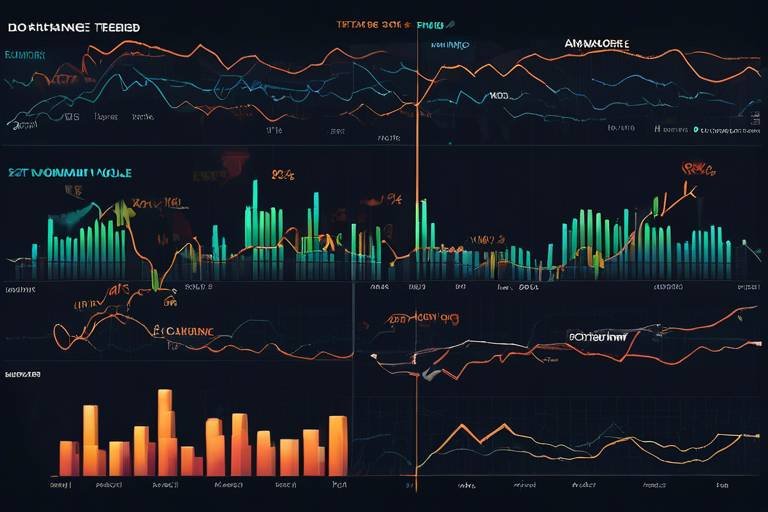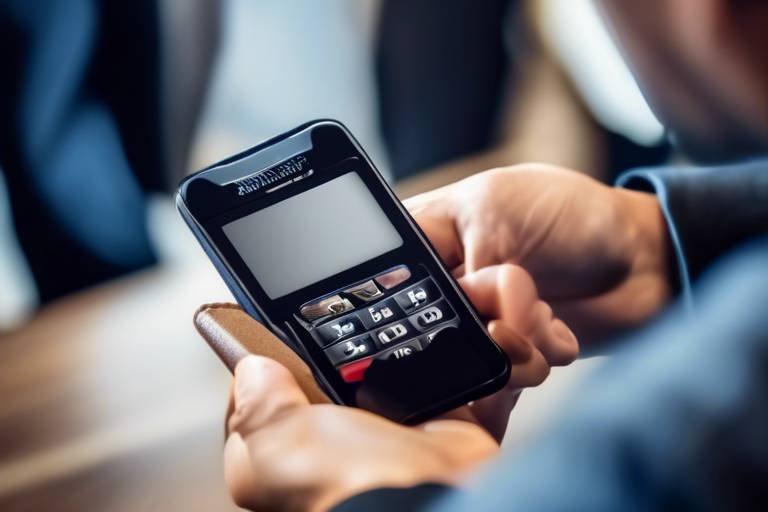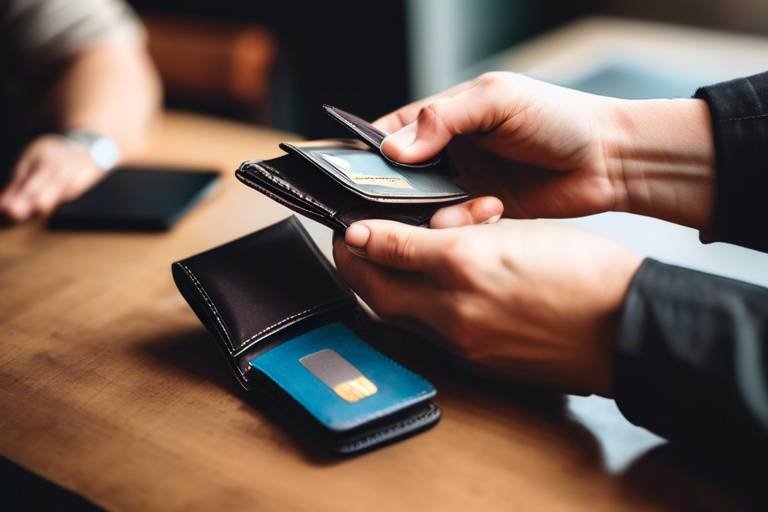Understanding the Different Types of Crypto Exchanges
In the ever-evolving world of cryptocurrency, choosing the right platform to trade can feel like navigating a maze. With numerous options available, each boasting unique features and functionalities, it’s crucial to understand the different types of crypto exchanges. This article will guide you through the various platforms, helping you identify which one aligns with your trading needs and investment strategies. Whether you’re a seasoned trader or just starting your crypto journey, knowing the ins and outs of these exchanges can significantly enhance your trading experience.
Centralized exchanges are often the first stop for many crypto enthusiasts. These platforms, like Binance and Coinbase, are the most popular for trading cryptocurrencies due to their high liquidity and user-friendly interfaces. Essentially, they act as intermediaries between buyers and sellers, ensuring secure transactions. Imagine a bustling marketplace where vendors and buyers meet, with the marketplace owner ensuring everything runs smoothly; that’s how centralized exchanges operate. They take care of the heavy lifting, allowing users to focus on trading.
On the flip side, we have decentralized exchanges, which operate without a central authority. This means that users can trade cryptocurrencies directly with one another, enhancing privacy and security. Think of it as a peer-to-peer garage sale where everyone is free to negotiate and trade without a middleman. While DEX platforms like Uniswap and SushiSwap provide significant advantages, they may lack the liquidity and user experience that centralized exchanges offer. This can sometimes lead to slower transaction speeds, which can be frustrating for traders looking to make quick moves.
One of the standout features of decentralized exchanges is the complete control they offer over funds and personal data. Users retain ownership of their private keys, reducing the risk of hacks that centralized exchanges face. Additionally, DEX platforms eliminate the need for intermediaries, enhancing privacy for traders. It’s like having your own vault where you’re the only one with the key, ensuring that your assets are safe and sound.
However, it’s essential to acknowledge the limitations of decentralized exchanges. While they provide greater control, they often grapple with challenges such as lower liquidity and slower transaction speeds compared to their centralized counterparts. This can lead to a less than optimal trading experience, especially during times of high market volatility when every second counts.
Some of the most popular decentralized exchanges include Uniswap and SushiSwap. These platforms have gained traction for allowing users to trade various tokens directly from their wallets without relying on a central authority. This direct trading model not only enhances security but also fosters a sense of community among users who value decentralization.
Hybrid exchanges aim to combine the best features of both centralized and decentralized exchanges. They offer enhanced security while maintaining user-friendly interfaces and liquidity. By blending the advantages of both worlds, hybrid exchanges cater to a broader audience, appealing to those who seek security without sacrificing usability. It’s like enjoying the comfort of a well-organized store while having the freedom of a flea market.
Peer-to-peer exchanges facilitate direct transactions between users, allowing them to negotiate terms and prices without intermediaries. These platforms often support a wide range of payment methods, adding to their convenience. Picture a bustling online forum where users can strike deals directly with one another; that’s the essence of P2P exchanges. They provide a unique trading experience that can be both thrilling and rewarding.
P2P exchanges offer users greater flexibility and privacy when trading cryptocurrencies. They can also provide access to local payment methods, making it easier for users in different regions to participate. This localized approach ensures that users can engage in transactions that suit their needs, making the trading process more accessible.
While P2P exchanges can be incredibly convenient, they also pose risks such as potential scams. Users must conduct their own due diligence before trading with unknown parties, which can be a daunting task for those new to the crypto space. It's crucial to approach P2P trading with caution, ensuring that you’re dealing with reputable individuals to safeguard your investments.
- What is the difference between CEX and DEX? Centralized exchanges act as intermediaries, while decentralized exchanges allow users to trade directly with one another.
- Are DEX platforms safe? While DEX platforms enhance privacy and security, users must still exercise caution and be aware of potential risks.
- Can I use multiple exchanges for trading? Absolutely! Many traders use a combination of exchanges to take advantage of different features and opportunities.
- What should I consider when choosing an exchange? Factors like security, liquidity, fees, and user experience should all play a role in your decision.
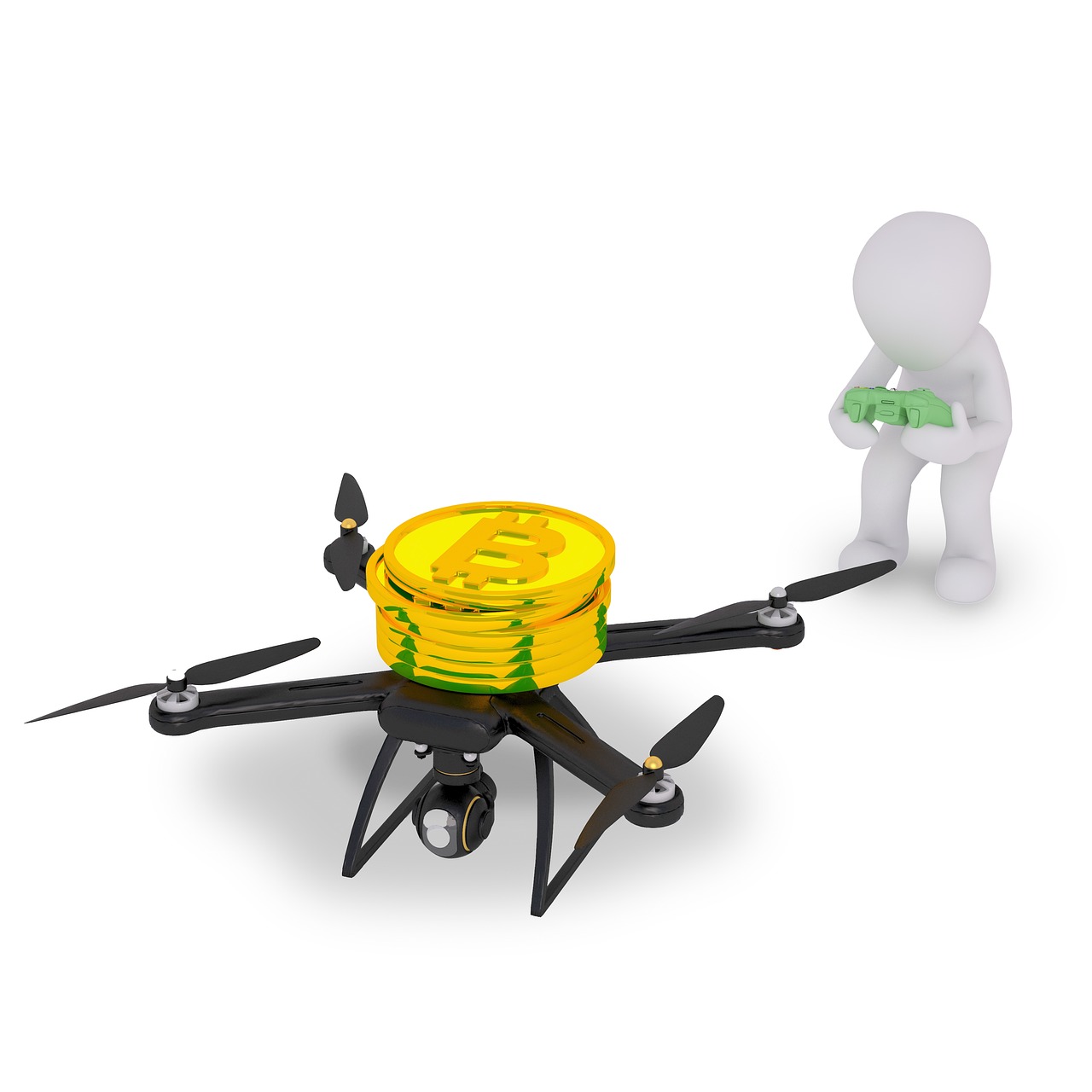
Centralized Exchanges (CEX)
Centralized exchanges, commonly referred to as CEX, are the bustling marketplaces of the cryptocurrency world. Imagine walking into a busy marketplace filled with vendors and buyers, where transactions flow smoothly, and everything is organized. That’s what a CEX offers – a structured environment where users can trade cryptocurrencies with ease. These platforms act as intermediaries, facilitating trades between buyers and sellers, which is why they are often the go-to choice for many traders, especially those new to the crypto scene.
One of the standout features of centralized exchanges is their high liquidity. This means that users can buy or sell their cryptocurrencies quickly without significantly affecting the market price. Think of it like a well-stocked supermarket; you can grab what you need without worrying about it running out. Furthermore, CEXs typically provide user-friendly interfaces that make navigation a breeze, even for those who aren't tech-savvy. The registration process is straightforward, and once you’re in, you’ll find a plethora of trading pairs at your fingertips.
Security is another critical aspect of centralized exchanges. While they do have vulnerabilities, such as being prime targets for hackers, reputable CEXs implement robust security measures to protect user funds. This includes two-factor authentication (2FA), cold storage for the majority of their assets, and regular security audits. However, it’s essential for users to exercise caution and follow best practices to ensure their accounts remain secure. After all, in the world of crypto, it’s always better to be safe than sorry!
To give you a clearer picture of what centralized exchanges offer, here’s a simple comparison table highlighting key features:
| Feature | Centralized Exchanges (CEX) |
|---|---|
| User Interface | User-friendly and intuitive |
| Liquidity | High liquidity for quick transactions |
| Security | Robust security measures, but still a target for hackers |
| Trading Pairs | Wide variety of cryptocurrency pairs available |
| Control of Funds | Users do not have full control; funds are held by the exchange |
Despite their many advantages, it’s crucial to remember that centralized exchanges come with their own set of risks. Since these platforms hold users' funds, there’s always the possibility of hacks or mismanagement. Therefore, it’s advisable for users to only keep the amount they plan to trade on the exchange, storing the rest in secure wallets. In essence, while centralized exchanges offer convenience and ease of use, they also require users to stay vigilant and informed about the risks involved.
In conclusion, centralized exchanges are a fantastic entry point for anyone looking to dive into cryptocurrency trading. They provide a combination of liquidity, security, and user-friendly features that cater to both beginners and experienced traders. However, as with any financial endeavor, it’s essential to do your research and choose a reputable platform that aligns with your trading needs.
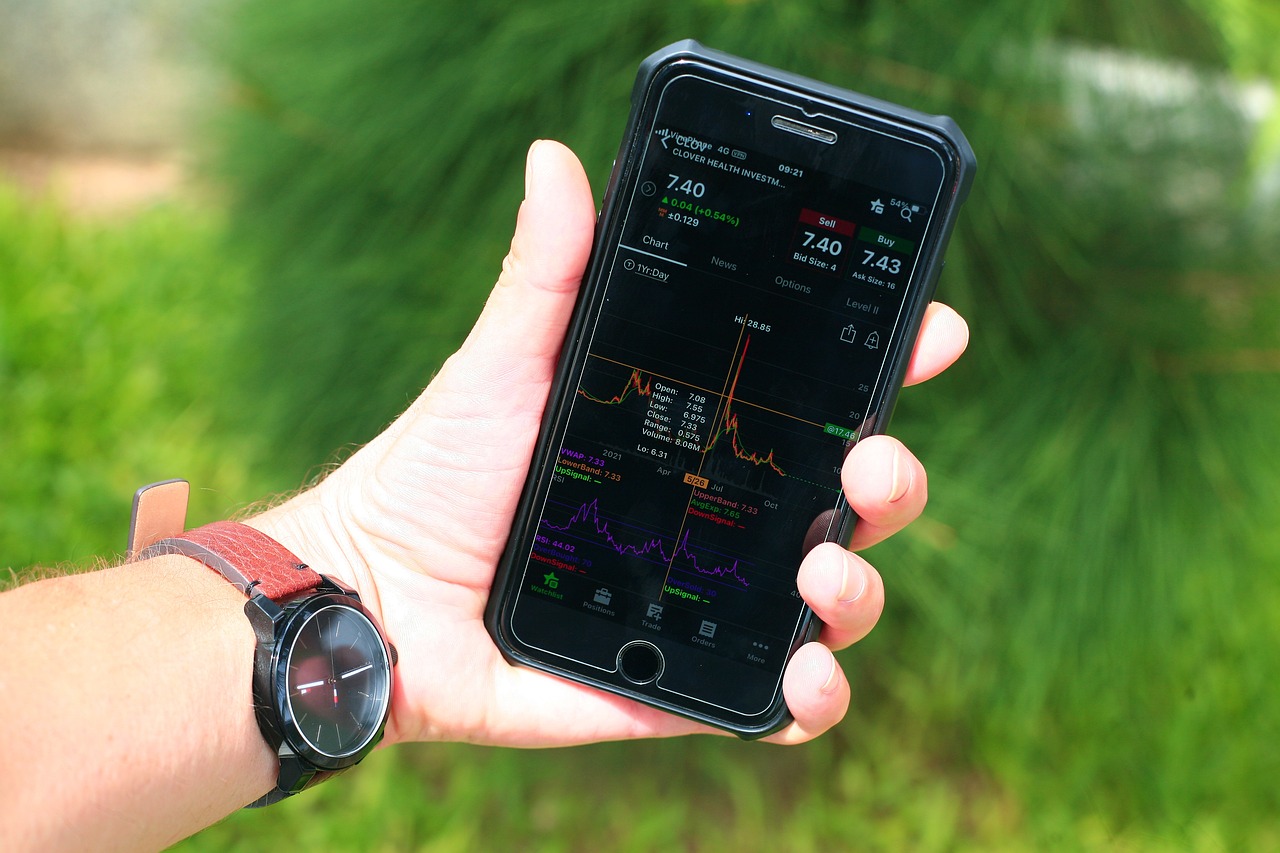
Decentralized Exchanges (DEX)
Decentralized exchanges, often referred to as DEX, represent a revolutionary shift in the way we trade cryptocurrencies. Unlike their centralized counterparts, DEX operate on a peer-to-peer basis, allowing users to trade directly with one another without the need for an intermediary. This means that you have complete control over your funds and your trading experience. Imagine being at a bustling market where you can negotiate and trade directly with other vendors, rather than going through a middleman – that’s the essence of a DEX!
One of the most appealing aspects of decentralized exchanges is the enhanced privacy they offer. When you trade on a DEX, you don’t need to provide extensive personal information, as you would on a centralized exchange. This anonymity is a significant draw for many users who value their privacy and want to keep their trading activities under wraps. However, this feature also comes with its own set of challenges, particularly regarding security and user experience.
While DEX platforms are celebrated for their security, as they eliminate the risk of hacks that often plague centralized exchanges, they can sometimes fall short in terms of liquidity. This means that during high-demand periods, you might find it challenging to execute trades at your desired prices. To illustrate this, consider a scenario where a popular token is experiencing a surge in interest. On a DEX, you may struggle to find a counterparty willing to trade at the price you want, leading to delays or unfavorable trades.
Despite these challenges, the popularity of DEX platforms continues to grow. Some of the well-known decentralized exchanges include Uniswap and SushiSwap. These platforms allow users to swap various tokens directly from their wallets, enabling seamless trading without the need for a central authority. The user interfaces of these exchanges are designed to be intuitive, making it easier for newcomers to navigate the world of decentralized trading.
In summary, while decentralized exchanges offer numerous advantages, such as enhanced privacy, security, and control over funds, they also come with limitations like lower liquidity and potential user experience challenges. As the crypto landscape continues to evolve, DEX will undoubtedly play a crucial role in shaping the future of trading. For anyone looking to explore the decentralized realm, it’s essential to weigh these pros and cons carefully.
- What is a decentralized exchange? A DEX is a trading platform that allows users to trade cryptocurrencies directly with one another, without the need for a central authority.
- Are DEX safe to use? While DEX can offer enhanced security by eliminating intermediaries, users must still exercise caution and conduct their own research.
- Do I need to create an account to use a DEX? No, DEX typically do not require you to create an account, as you trade directly from your wallet.
- What are some popular DEX platforms? Some well-known DEX platforms include Uniswap, SushiSwap, and PancakeSwap.

Benefits of DEX
This article explores various types of cryptocurrency exchanges, their functionalities, and how they cater to different trading needs, helping users choose the right platform for their investment strategies.
Centralized exchanges are the most popular platforms for trading cryptocurrencies, offering high liquidity and user-friendly interfaces. They act as intermediaries between buyers and sellers, ensuring secure transactions.
Decentralized exchanges operate without a central authority, allowing peer-to-peer trading directly between users. They enhance privacy and security, but may lack the liquidity and user experience of centralized platforms.
One of the most appealing aspects of Decentralized Exchanges (DEX) is the unparalleled control they offer users over their funds and personal data. Unlike centralized platforms, where you often have to trust a third party with your assets, DEX platforms empower you to maintain full ownership of your cryptocurrencies. This means you can trade directly from your wallet without the risk of someone else mismanaging your assets.
Moreover, DEX platforms enhance privacy significantly. Since these exchanges do not require users to create accounts or share personal information, your trading activities remain confidential. This level of anonymity is a breath of fresh air in a world where data breaches and privacy concerns are rampant.
Another major benefit is the reduction of risks associated with hacks and fraud. Because DEX platforms eliminate intermediaries, the chance of large-scale hacks diminishes. Users connect directly with one another, making it much harder for malicious actors to exploit vulnerabilities. Here’s a quick overview of some key benefits:
- Complete Control: Users have full ownership of their funds.
- Enhanced Privacy: No need for personal data or account creation.
- Reduced Risk: Lower chances of hacks and fraud.
Furthermore, DEX platforms often support a wide variety of tokens. This diversity allows users to explore and trade lesser-known cryptocurrencies that might not be available on centralized exchanges. It’s like having a treasure chest of digital assets at your fingertips! However, it's important to note that this abundance of options can also lead to confusion for novice traders, so always do your research before diving in.
In summary, the benefits of using decentralized exchanges are hard to overlook. They provide a secure, private, and versatile trading environment that appeals to both seasoned traders and newcomers alike. With the crypto landscape continually evolving, DEX platforms are positioning themselves as a vital component of the future of digital currency trading.
P2P exchanges facilitate direct transactions between users, allowing them to negotiate terms and prices without intermediaries. These platforms often support a wide range of payment methods for added convenience.
P2P exchanges offer users greater flexibility and privacy when trading cryptocurrencies. They can also provide access to local payment methods, making it easier for users in different regions to participate.
While P2P exchanges can be convenient, they also pose risks such as potential scams and the need for users to conduct their own due diligence before trading with unknown parties.
What is a DEX?
A decentralized exchange (DEX) is a trading platform that operates without a central authority, allowing users to trade directly with one another.
Are DEXs safe to use?
Yes, DEXs generally offer higher security as they eliminate the need for users to trust a centralized entity with their funds. However, users should still exercise caution and conduct their own research.
Can I trade any cryptocurrency on a DEX?
Many DEXs support a wide variety of tokens, but availability may vary. It’s essential to check the specific exchange for the tokens you wish to trade.
Do I need to create an account to use a DEX?
No, most DEXs do not require account creation, allowing users to trade directly from their wallets.
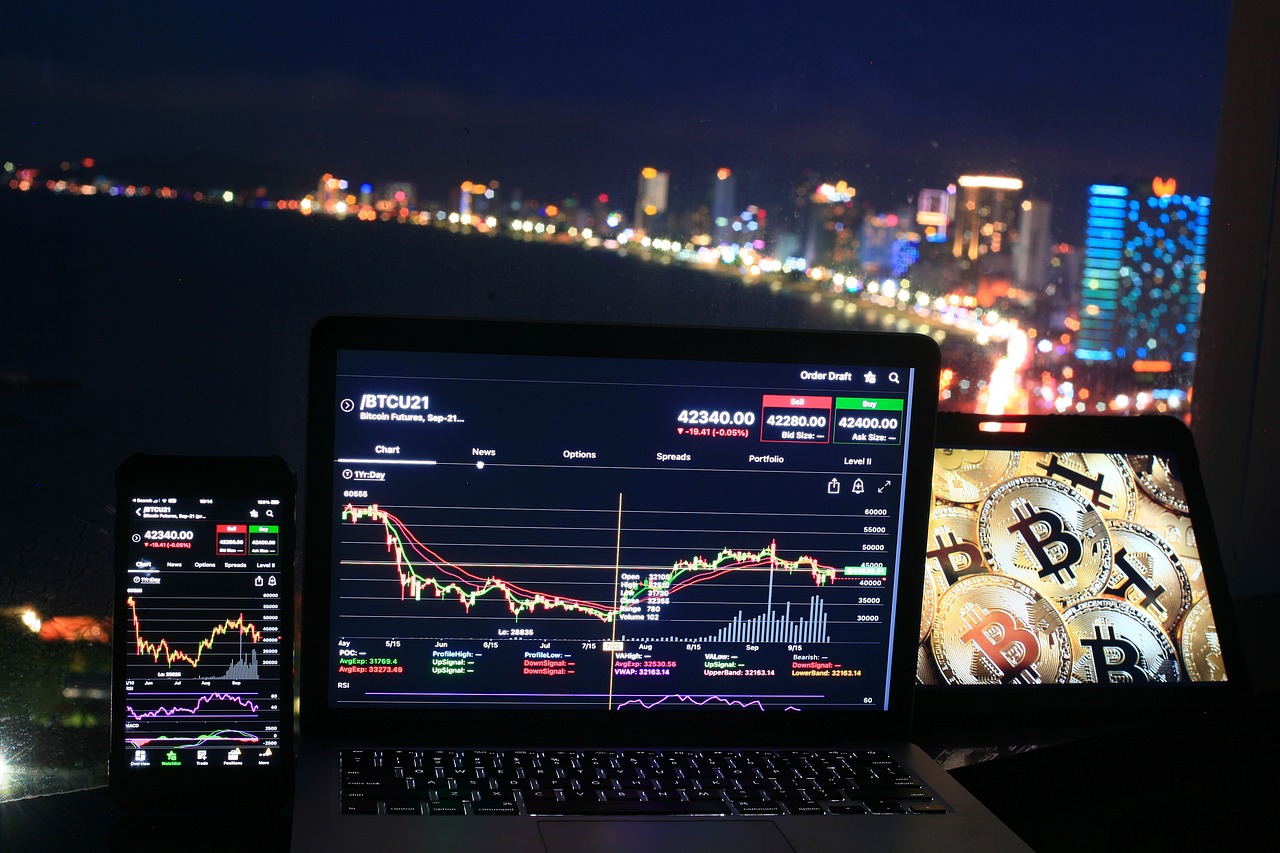
Limitations of DEX
Decentralized exchanges (DEX) have revolutionized the way we trade cryptocurrencies, but they are not without their challenges. One of the most significant limitations is liquidity. Unlike centralized exchanges, which often have a large pool of buyers and sellers, DEX platforms can experience lower trading volumes. This can lead to slippage, where the price you see when placing an order differs from the price at which the order is executed. Imagine trying to buy a popular concert ticket; if the demand is low, you might snag a great deal, but if it's high, you could end up paying much more than expected. In the crypto world, this unpredictability can be frustrating.
Another challenge is the transaction speed. While centralized exchanges can process trades almost instantaneously due to their centralized nature, DEX platforms often rely on blockchain technology, which can be slower. This lag can be particularly detrimental during times of market volatility when every second counts. Picture a race where one runner has to wait for their turn to sprint while the others zoom ahead; that’s how it feels when you’re trying to execute a trade on a DEX during a price surge.
Moreover, the user experience on DEX platforms can be less intuitive compared to their centralized counterparts. Many users may find the interfaces complex and overwhelming, especially if they are new to cryptocurrency trading. The learning curve can be steep, and without proper guidance, users might feel lost in a sea of technical jargon and unfamiliar features. Just like learning to navigate a new city without a map, trading on a DEX can be daunting for beginners.
Security is another area where DEXs can fall short. While they eliminate the need for a central authority, which can reduce the risk of hacks, they are not immune to other types of vulnerabilities. Smart contract bugs and exploits can lead to significant losses for users who may not fully understand the technology behind these platforms. It's akin to trusting a new restaurant; just because it’s not part of a chain doesn’t mean it’s safe or reliable.
In conclusion, while decentralized exchanges offer exciting possibilities for privacy and control over funds, they come with their own set of limitations. From liquidity issues to slower transaction speeds and a steeper learning curve, users need to weigh these factors carefully before diving into the world of DEX trading. Understanding these limitations can help traders make informed decisions that align with their investment strategies.
- What are the main advantages of using a DEX? DEXs offer enhanced privacy, control over funds, and reduce the risk of hacks.
- Can I trade any cryptocurrency on a DEX? While many DEXs support a wide range of tokens, not all cryptocurrencies are available on every platform.
- Are DEXs safe? DEXs can be safe, but users should be aware of smart contract vulnerabilities and take necessary precautions.
- How do I choose the right exchange for my needs? Consider factors like liquidity, user experience, and the specific cryptocurrencies you want to trade.

Popular DEX Platforms
When it comes to decentralized exchanges (DEX), a few platforms have truly made a name for themselves in the bustling world of cryptocurrency trading. These platforms not only allow users to trade directly with one another but also provide unique features that cater to various trading preferences. Let's dive into some of the most popular DEX platforms that are currently making waves in the crypto community.
Uniswap is arguably the most well-known decentralized exchange. It operates on the Ethereum blockchain and uses an automated market-making (AMM) system, which means users can trade tokens without needing a traditional order book. Instead, liquidity providers supply funds to liquidity pools, and traders can swap tokens directly from these pools. This model enhances trading efficiency and allows for a seamless user experience. With a user-friendly interface, Uniswap has become a go-to choice for many crypto enthusiasts.
Another noteworthy platform is SushiSwap, which started as a fork of Uniswap but has since evolved into a robust DEX with additional features. SushiSwap not only allows token swaps but also offers yield farming opportunities, where users can earn rewards by staking their tokens in liquidity pools. This dual functionality attracts a diverse user base, eager to maximize their returns while enjoying the benefits of decentralized trading.
For those interested in cross-chain trading, Thorchain is a game-changer. Unlike many DEX platforms that are limited to a single blockchain, Thorchain facilitates swaps between different cryptocurrencies without the need for a centralized intermediary. This capability opens up a world of possibilities for traders looking to diversify their portfolios across various blockchain ecosystems.
Lastly, we have PancakeSwap, which operates on the Binance Smart Chain (BSC). Known for its low transaction fees and fast processing times, PancakeSwap has gained immense popularity, especially among users seeking an alternative to Ethereum's high gas fees. The platform features a similar AMM model as Uniswap, allowing users to trade tokens and participate in yield farming, all while enjoying a vibrant community and engaging platform.
In summary, these popular DEX platforms are revolutionizing how we trade cryptocurrencies. Each offers unique features and functionalities that cater to different trading needs and preferences. Whether you're a seasoned trader or just starting out, exploring these platforms can provide you with valuable insights and opportunities in the ever-evolving world of decentralized finance.
As you consider diving into the world of decentralized exchanges, keep in mind the importance of doing your own research and understanding the specific features each platform offers. By doing so, you can choose the right DEX that aligns with your trading strategies and goals.
- What is a DEX? A decentralized exchange (DEX) allows users to trade cryptocurrencies directly with one another without a central authority overseeing the transactions.
- How do I use a DEX? To use a DEX, you'll typically need a compatible cryptocurrency wallet, some tokens to trade, and an understanding of how to navigate the platform's interface.
- Are DEX platforms safe? While DEX platforms offer enhanced privacy and control over your funds, they also come with risks such as smart contract vulnerabilities and potential scams. Always do your due diligence.
- Can I trade any cryptocurrency on a DEX? DEX platforms support various tokens, but the availability depends on the specific platform and the liquidity of the tokens you wish to trade.

Hybrid Exchanges
Hybrid exchanges are like the best of both worlds, combining the advantages of centralized and decentralized exchanges to create a unique trading environment. Imagine having the security of a decentralized platform while enjoying the user-friendly interface and liquidity of a centralized one. This fusion allows traders to experience the benefits of both systems, which is increasingly appealing in the fast-paced world of cryptocurrency.
One of the standout features of hybrid exchanges is their ability to maintain a high level of security without sacrificing usability. By utilizing smart contracts and decentralized technology, these platforms can ensure that your funds remain safe from hacks and unauthorized access. This is a significant concern, especially given the increasing number of security breaches in the crypto space. Additionally, hybrid exchanges often provide users with the option to retain control over their private keys, further enhancing security.
Moreover, hybrid exchanges typically offer a more extensive range of trading pairs and options, making them attractive for both novice and seasoned traders. They can cater to a diverse audience by allowing users to trade a variety of cryptocurrencies without being limited to a specific ecosystem. This flexibility is particularly beneficial for those looking to explore emerging tokens or niche markets.
However, like any trading platform, hybrid exchanges come with their own set of challenges. For instance, the complexity of combining both centralized and decentralized elements can lead to a steeper learning curve for new users. Additionally, while they aim to provide high liquidity, it may not always match that of the largest centralized exchanges. Therefore, it’s essential for traders to conduct thorough research before choosing a hybrid exchange that aligns with their trading strategies.
To summarize, hybrid exchanges offer a compelling alternative for cryptocurrency traders who seek a balance between security and usability. They are designed to cater to various trading needs, making them an exciting option in the ever-evolving landscape of digital currencies. As the market continues to mature, the popularity of hybrid exchanges is likely to grow, attracting more users who value both security and efficiency in their trading experience.
- What are hybrid exchanges? Hybrid exchanges combine features of centralized and decentralized exchanges, providing a secure and user-friendly trading environment.
- Are hybrid exchanges safe? Yes, hybrid exchanges enhance security by utilizing smart contracts and allowing users to maintain control over their private keys.
- Can I trade any cryptocurrency on hybrid exchanges? Hybrid exchanges typically offer a wide range of trading pairs, allowing users to trade various cryptocurrencies.
- Do I need to be experienced to use a hybrid exchange? While hybrid exchanges are designed to be user-friendly, new users may face a learning curve due to the combination of centralized and decentralized features.
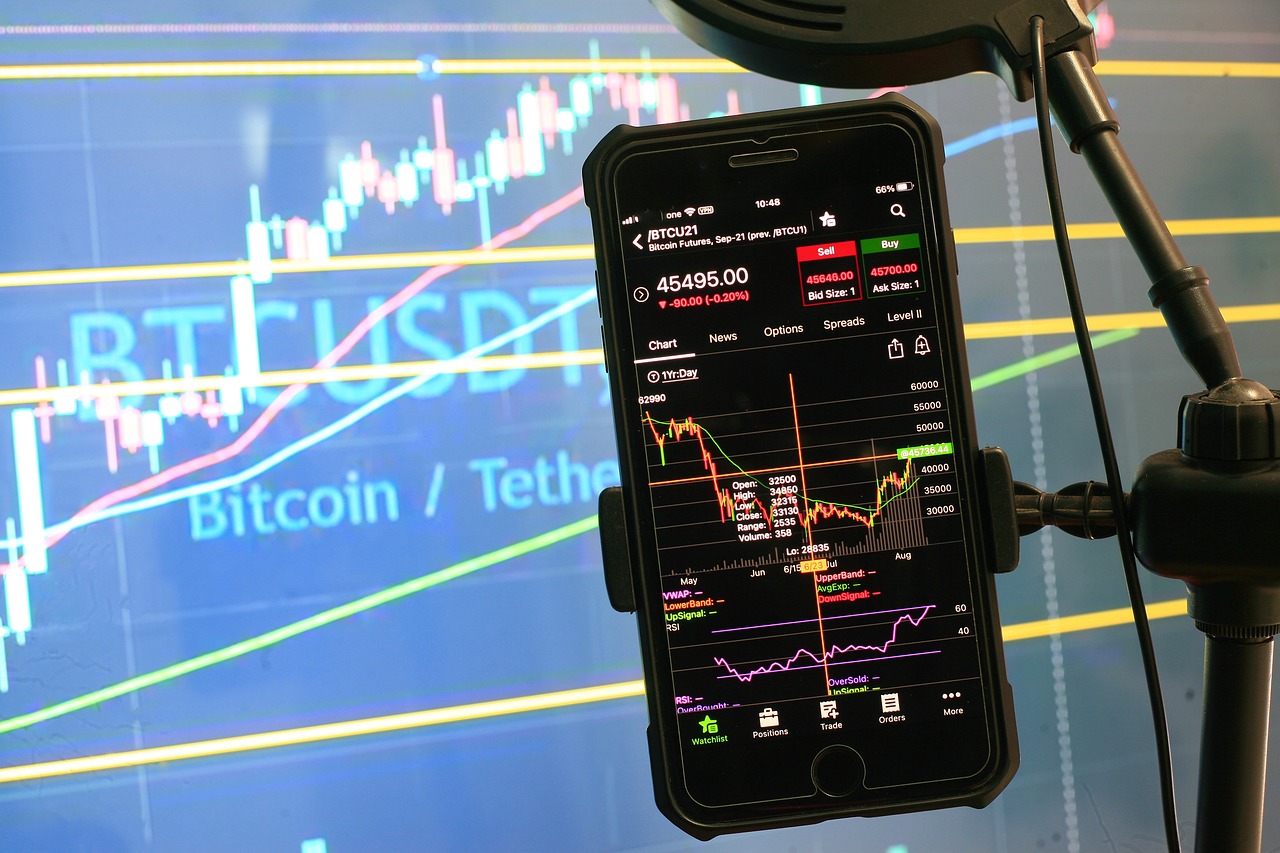
Peer-to-Peer (P2P) Exchanges
Peer-to-peer (P2P) exchanges have revolutionized the way we trade cryptocurrencies by allowing users to connect directly with each other. Imagine walking into a marketplace where you can negotiate prices and terms with vendors face-to-face, without any middleman. That’s essentially what P2P exchanges offer in the digital realm. These platforms facilitate transactions between users, enabling them to buy and sell cryptocurrencies directly, often using a variety of payment methods that suit their needs.
One of the standout features of P2P exchanges is their flexibility. Users can set their own prices and choose payment options that are most convenient for them. This can include bank transfers, PayPal, or even cash transactions, which can be particularly beneficial in regions where traditional banking services are limited. However, this freedom comes with its own set of challenges. For instance, while negotiating terms can lead to favorable deals, it also opens the door to potential scams. Therefore, users must exercise caution and conduct thorough due diligence before engaging in transactions with unknown parties.
Security is another critical aspect of P2P exchanges. While they eliminate the need for a central authority, they place the onus of security on the users. Many P2P platforms implement escrow services to protect both buyers and sellers during transactions. This means that the cryptocurrency being sold is held in a secure escrow account until both parties fulfill their obligations, ensuring that no one walks away with the funds without completing the trade. This added layer of security can significantly reduce the risk of fraud, but it’s still important for users to remain vigilant.
To illustrate the advantages and challenges of P2P exchanges, consider the following table:
| Advantages | Challenges |
|---|---|
|
|
In summary, P2P exchanges offer a unique and flexible approach to cryptocurrency trading that can be incredibly beneficial for users who are willing to navigate the potential pitfalls. As these platforms continue to grow in popularity, they provide an increasingly viable option for individuals looking to buy and sell cryptocurrencies directly. However, just like any marketplace, it’s crucial to stay informed and cautious to ensure a safe trading experience.
Q1: What are P2P exchanges?
A P2P exchange allows users to trade cryptocurrencies directly with each other, without the need for a central authority. Users can negotiate terms and prices, making the trading process more flexible.
Q2: How do I ensure my safety when using a P2P exchange?
Always use platforms that offer escrow services, research the other party, and check for user ratings and reviews to minimize the risk of scams.
Q3: What payment methods can I use on P2P exchanges?
P2P exchanges typically support a variety of payment methods, including bank transfers, PayPal, cash transactions, and even gift cards, depending on the platform.
Q4: Are P2P exchanges suitable for beginners?
While P2P exchanges offer flexibility, they may not be the best choice for beginners who are unfamiliar with the risks involved. It’s essential to educate oneself about the process and security measures before diving in.
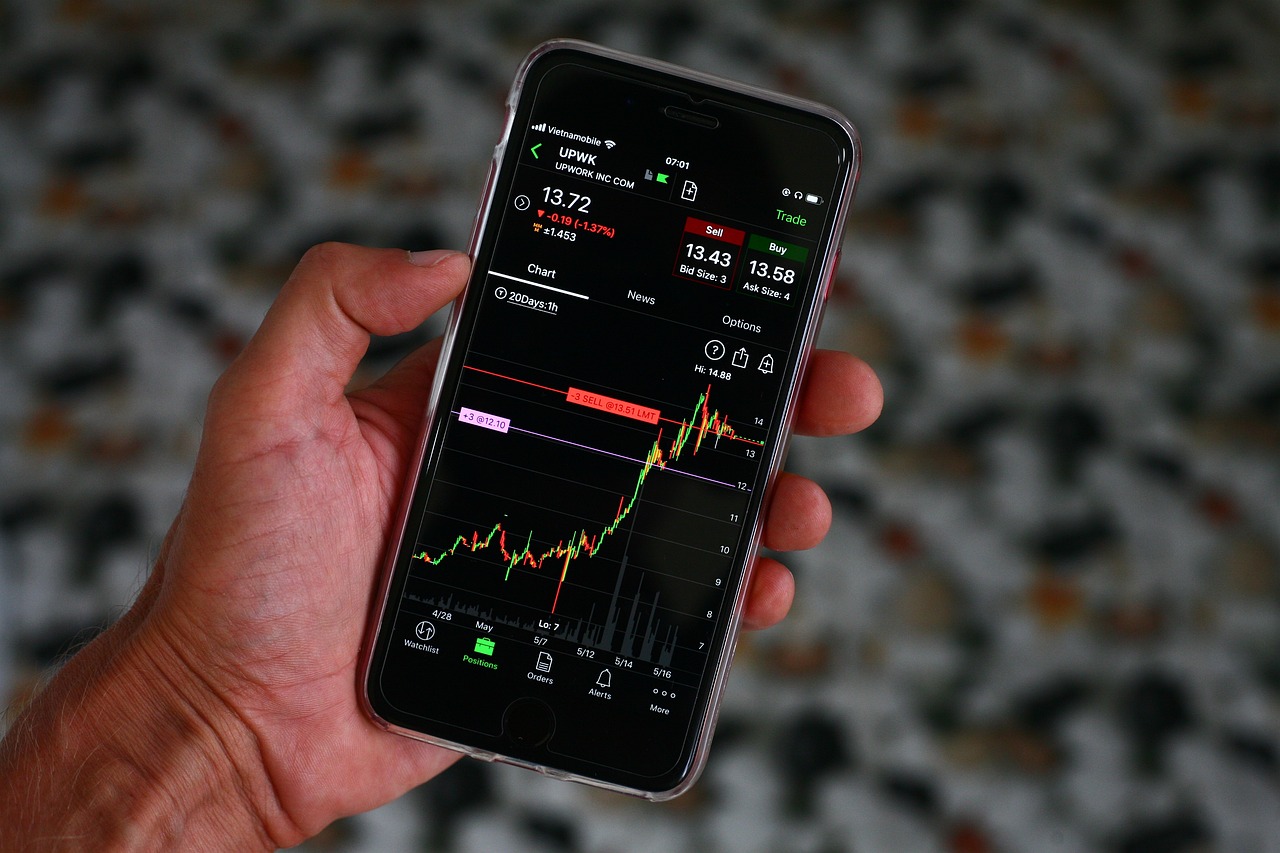
Advantages of P2P Exchanges
Peer-to-peer (P2P) exchanges have emerged as a game-changer in the world of cryptocurrency trading, offering a myriad of advantages that appeal to both seasoned traders and newcomers alike. One of the most significant benefits is the **flexibility** they provide. Unlike traditional exchanges, P2P platforms allow users to negotiate terms and conditions directly with one another. This means you can set your own prices and trading conditions, making the trading process more tailored to your individual needs.
Moreover, P2P exchanges enhance **privacy**. When you trade on a centralized platform, you often have to share a lot of personal information, which can be a concern for many users. However, P2P exchanges allow for transactions without the need for intermediaries, which means you can keep your personal data more secure. You can trade directly from your wallet, maintaining full control over your funds and information.
Another compelling advantage is the **access to diverse payment methods**. P2P exchanges often support a wide range of payment options, including bank transfers, PayPal, and even cash transactions. This can be particularly beneficial for users in regions where traditional banking options are limited or where cryptocurrencies are not widely accepted. The ability to choose your preferred payment method can make trading much more convenient and accessible.
Additionally, P2P exchanges can facilitate **local trading**. This is particularly advantageous for users who want to buy or sell cryptocurrencies in their local currency. By connecting with other local traders, you can often find better deals and avoid the fees associated with converting currencies on centralized exchanges. This local focus can create a sense of community among traders, fostering a more collaborative trading environment.
However, it's essential to remain vigilant when using P2P exchanges. While they offer numerous advantages, users must conduct their own due diligence to ensure safe trading practices. Always check the reputation of your trading partner and consider using an escrow service to protect your funds during the transaction. In conclusion, P2P exchanges offer a unique blend of flexibility, privacy, and convenience, making them a popular choice for many cryptocurrency enthusiasts.
- What is a P2P exchange? A P2P exchange is a platform that allows users to trade cryptocurrencies directly with one another, without the need for intermediaries.
- Are P2P exchanges safe? While P2P exchanges can be safe, users should conduct their own research and use precautions such as escrow services to minimize risks.
- What payment methods can I use on P2P exchanges? P2P exchanges often support various payment methods, including bank transfers, PayPal, and cash transactions.
- Can I negotiate prices on P2P exchanges? Yes, one of the advantages of P2P exchanges is that users can negotiate prices and terms directly with each other.
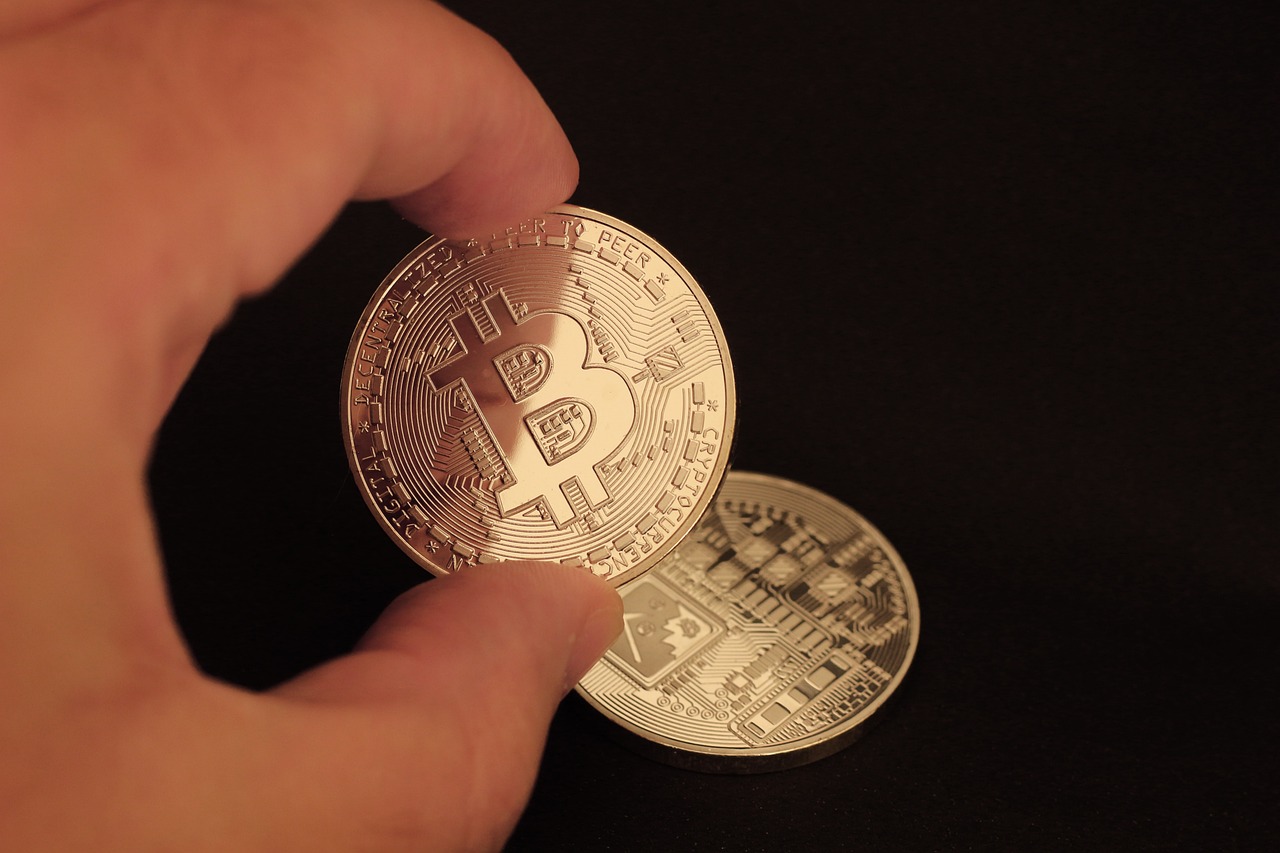
Challenges of P2P Exchanges
While P2P exchanges offer a unique and flexible way to trade cryptocurrencies, they are not without their challenges. One of the most significant hurdles users face is the risk of scams. Since these platforms facilitate direct transactions between users, there's always a chance that one party may not be honest. This can lead to situations where users send their funds and receive nothing in return. Therefore, it's crucial for traders to conduct thorough research and due diligence before engaging with unknown parties.
Another challenge is the lack of regulation. Unlike centralized exchanges that often comply with financial regulations and have measures in place to protect users, P2P platforms can operate in a more unregulated environment. This absence of oversight means that users may not have the same level of protection against fraud or disputes. If something goes wrong during a transaction, resolving the issue can be complicated, as there may be no official channels to turn to for assistance.
Additionally, the user experience on P2P exchanges can vary significantly. Some platforms may have clunky interfaces or inadequate customer support, making it difficult for users to navigate the trading process. This can be especially frustrating for those who are new to cryptocurrency trading. Users might find themselves spending more time figuring out how to use the platform than actually trading.
Moreover, the speed of transactions on P2P exchanges can be slower compared to centralized exchanges. Since trades often require both parties to agree on terms and confirm the transaction, this back-and-forth can lead to delays. In the fast-paced world of cryptocurrency, where prices can fluctuate rapidly, this lag can result in missed opportunities for traders.
In summary, while P2P exchanges provide a valuable service by connecting users directly, they come with inherent challenges. Users must remain vigilant and proactive in protecting themselves during trades. Here are some key points to remember:
- Always verify the reputation of the trading partner.
- Use platforms that offer escrow services to mitigate risks.
- Stay informed about the latest scams and fraudulent activities in the space.
- Be prepared for potential delays in transactions.
By understanding these challenges and approaching P2P trading with caution, users can navigate the world of cryptocurrency more safely and effectively.
Q: What is a P2P exchange?
A P2P exchange is a platform that allows users to trade cryptocurrencies directly with each other without the need for an intermediary. Users can negotiate terms and prices, offering greater flexibility in transactions.
Q: Are P2P exchanges safe?
While P2P exchanges can be safe, they come with risks such as scams and lack of regulation. It's essential to conduct due diligence and use platforms that offer escrow services to protect your funds.
Q: How do I avoid scams on P2P exchanges?
To avoid scams, always check the reputation of the trading partner, use escrow services, and stay informed about common scams in the cryptocurrency space.
Q: Can I use local payment methods on P2P exchanges?
Yes, many P2P exchanges support a variety of local payment methods, making it easier for users to buy and sell cryptocurrencies in their region.
Frequently Asked Questions
- What is a centralized exchange (CEX)?
A centralized exchange (CEX) is a platform that facilitates cryptocurrency trading by acting as an intermediary between buyers and sellers. These exchanges are known for their user-friendly interfaces and high liquidity, making them popular among traders.
- How do decentralized exchanges (DEX) work?
Decentralized exchanges (DEX) allow users to trade cryptocurrencies directly with one another without a central authority. This peer-to-peer trading enhances privacy and security, but it may come with challenges like lower liquidity and slower transaction speeds.
- What are the benefits of using a DEX?
DEX platforms provide users with complete control over their funds and personal data. They eliminate the need for intermediaries, which reduces the risk of hacks and enhances privacy for traders, making them an attractive option for many.
- What are the limitations of decentralized exchanges?
Despite their advantages, decentralized exchanges often face challenges such as lower liquidity and potentially slower transaction speeds compared to centralized exchanges. This can affect the overall trading experience for users.
- Can you name some popular DEX platforms?
Some popular decentralized exchanges include Uniswap and SushiSwap. These platforms allow users to trade various tokens directly from their wallets, providing a seamless trading experience without relying on a central authority.
- What is a hybrid exchange?
A hybrid exchange combines features of both centralized and decentralized exchanges. It aims to offer enhanced security while maintaining user-friendly interfaces and high liquidity, catering to a wide range of trading needs.
- How do peer-to-peer (P2P) exchanges work?
P2P exchanges facilitate direct transactions between users, allowing them to negotiate terms and prices without intermediaries. These platforms often support various payment methods, making it easier for users in different regions to trade.
- What are the advantages of using P2P exchanges?
P2P exchanges offer users greater flexibility and privacy when trading cryptocurrencies. They also provide access to local payment methods, making it easier for users in various regions to participate in the crypto market.
- What challenges do P2P exchanges present?
While P2P exchanges can be convenient, they come with risks such as potential scams. Users must conduct their own due diligence before trading with unknown parties to ensure a safe trading experience.





